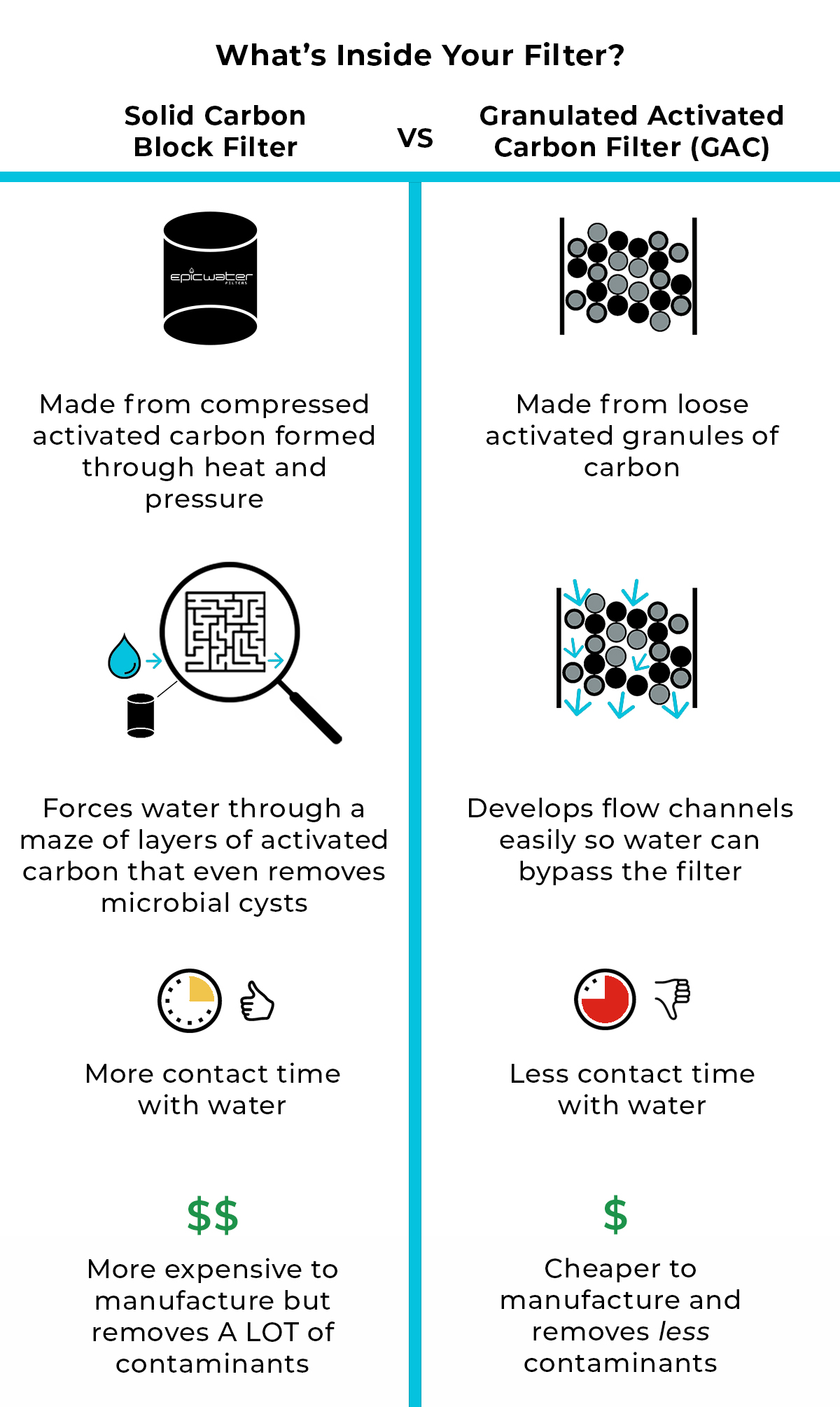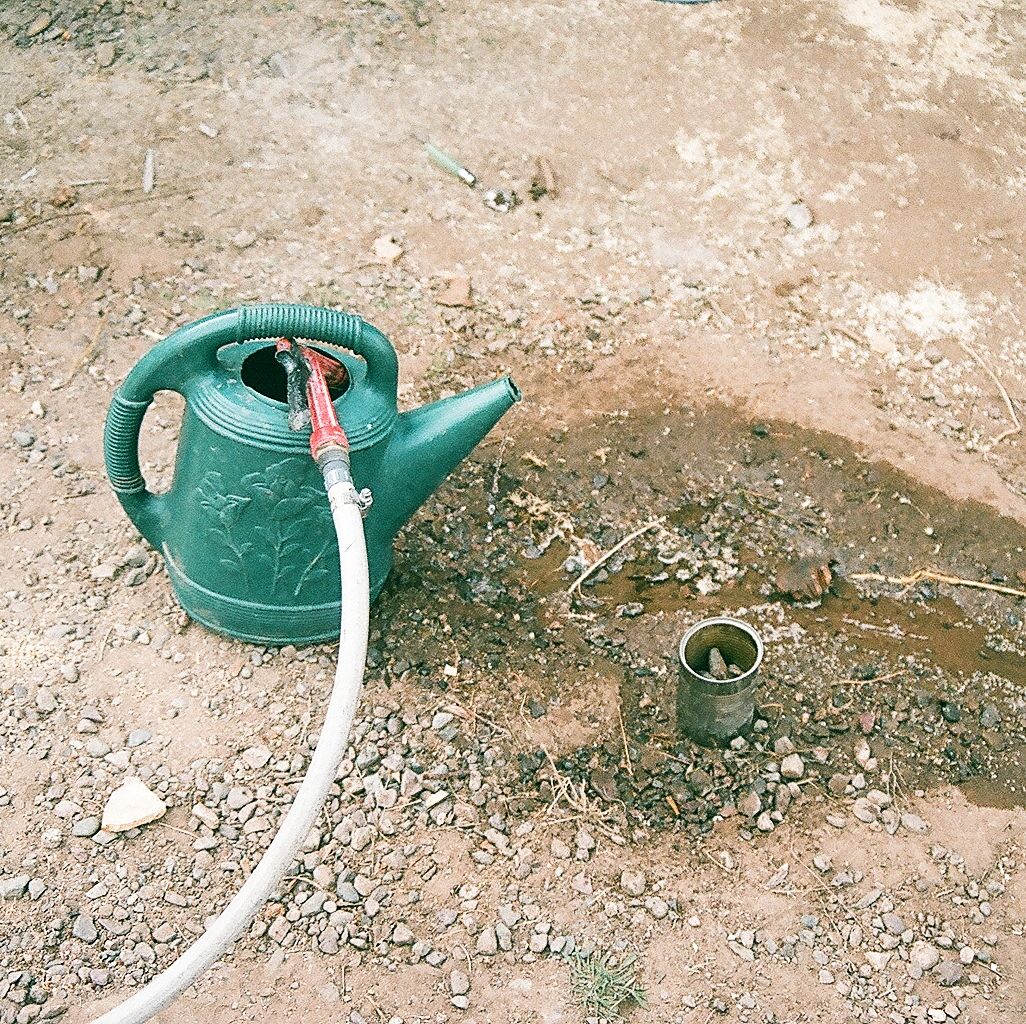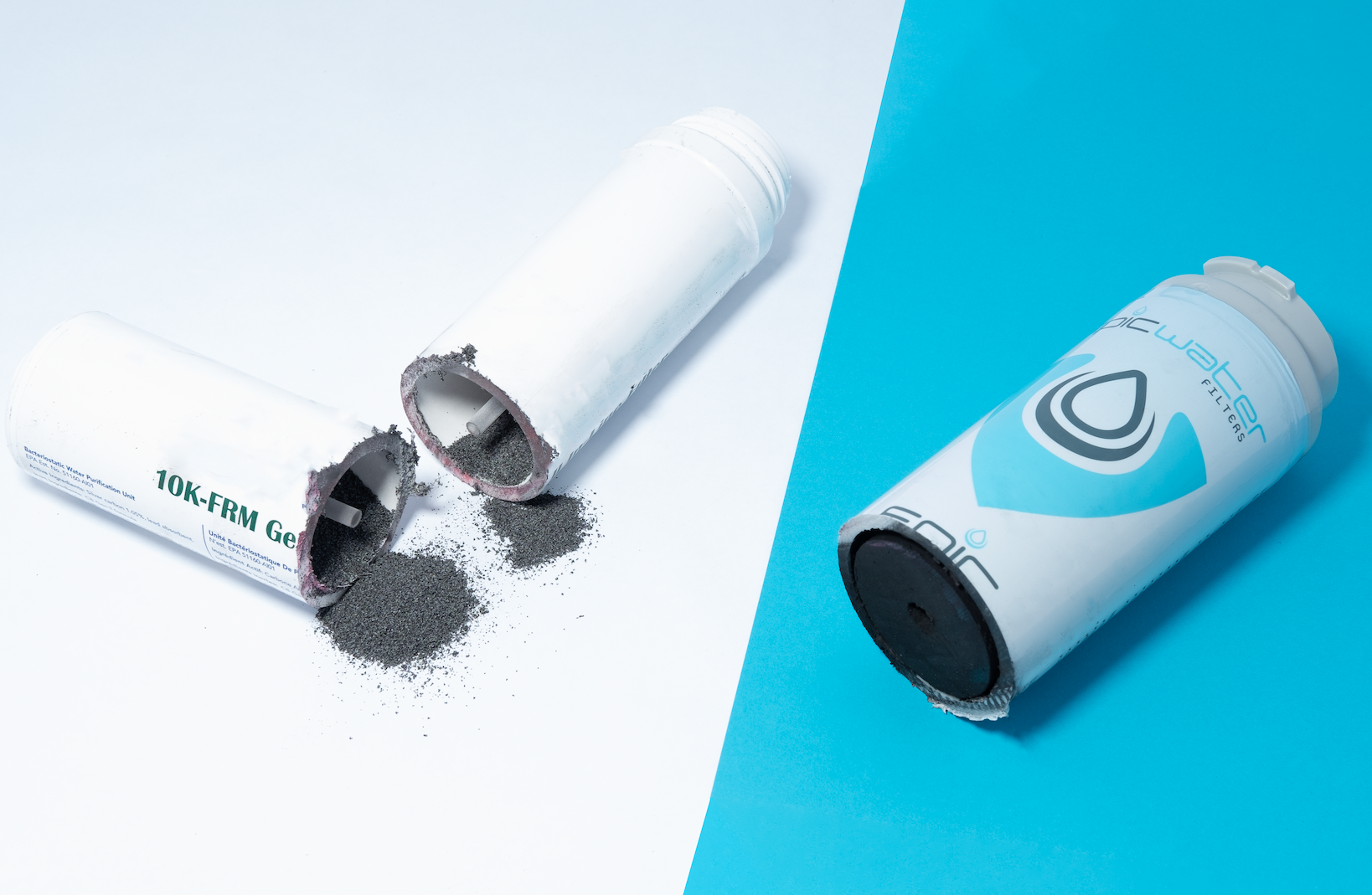
How do they stack up?
Often, individuals buy a filter based on brand name (this doesn't just include filter purchases), but even if you're a big company that's been in the business for a while it doesn't mean you're staying with the times or that you're ensuring the best product to your customers. Most often water filtration companies will either opt for a granulated activated carbon filter (aka GAC) or an activated solid carbon block filter (that's what we use). Read on to see why. 😉
There are a few reasons a company would choose a GAC filter. It's much cheaper to manufacture and consequently doesn't last as long, which is better for business. Apart from that, however, the reasons don't seem to support the decision. GAC filters develop flow channels easily which allows water to bypass the filter altogether and since it already has less contact time with water than other filters, it's really not all that effective at removing contaminants. (Brita, we're looking at you.)
Activated solid carbon block filters, on the other hand, are more expensive to manufacture, though they last much longer. With a solid carbon block, water is forced through a maze of layers in the filter which allows it to trap contaminants that a GAC filter cannot, and it can even remove microbial cysts. It ensures the water has a longer contact time with the filter because of that design, which means it can be really effective at removing contaminants like fluoride that heavily depend upon contact time with a filter in order to be removed.
We made a little graphic for you to outline and highlight the main differences. Check it out below. ↓

It's never been easier to conduct personal research and analyze gathered data in an informed way that you as an individual can feel good about. We hope this helps you on that path because being informed about getting the cleanest water is as equally important to us as it is to you.
Always feel free to reach out with any questions, and we'd be happy to chat.

Forrest G
Crazy about clean water, rocks (climbing them), and gardening


Share:
Cooking with Filtered Water
A Closer Look into BPA